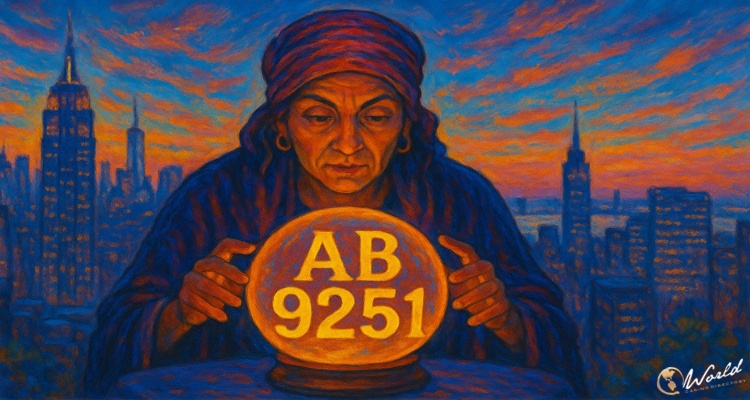A New York state lawmaker is taking steps to rein in the fast-growing world of prediction markets, proposing legislation that would create the first clear legal framework for platforms like Kalshi and Polymarket. Assemblyman Clyde Vanel (D), chair of the Assembly Banks Committee, has introduced Bill A.B. 9251 — a measure designed to impose oversight, restrict certain types of trading, and empower the state’s attorney general to act against unlicensed operators.
Filed on November 7, Vanel’s proposal, officially titled the Oversight and Regulation of Activity for Contracts Linked to Events (ORACLE) Act, aims to amend New York’s general business law to address the growing presence of event-based trading platforms. The legislation would effectively bring prediction markets under the same kind of scrutiny that traditional gambling companies face.
Vanel said the bill seeks to provide “statutory authority” for regulators to establish rules and ensure consumer protection in a rapidly evolving industry. Prediction markets, where users can trade on the outcome of future events such as elections or sports contests, currently operate in a legal gray area in New York. While online sports betting is authorized, prediction exchanges remain largely unregulated — something Vanel’s bill intends to change.
The proposed law would prohibit contracts related to “catastrophic events, politics, deaths, securities, and athletic events.” However, it allows limited exceptions for tournament-wide markets, meaning users could still speculate on outcomes such as the NBA Finals or March Madness brackets.
Restrictions Mirror Gambling Safeguards
The ORACLE Act also calls for strict consumer protections mirroring those already required of licensed sportsbooks. Among its provisions: participants must be at least 21 years old, platforms must provide self-exclusion tools and deposit limits, and all use of credit-based payments or “risk-free” promotional language would be banned.
To discourage predatory marketing, operators would be required to display New York’s problem gambling helpline and avoid push notifications that promote excessive wagering. Violations could result in severe penalties — up to $50,000 per infraction and as much as $1 million per day for continued noncompliance.
“The legislation would give the New York Attorney General’s office clear power to pursue civil penalties and injunctions against platforms that fail to comply,” according to the bill’s language. The attorney general could seek court orders to suspend or shut down operations violating state law.
Kalshi’s Legal Challenges
Vanel’s bill arrives as prediction market operator KalshiEX LLC faces scrutiny from state regulators. On October 24, the New York State Gaming Commission (NYSGC) ordered Kalshi to stop facilitating trades tied to election and sports outcomes, calling its platform an unlicensed mobile sports wagering operation. The directive cited contracts linked to the New York City mayoral race between Zohran Mamdani and Andrew Cuomo — a market that had seen more than $63 million in trades before being halted.
Kalshi has pushed back, filing lawsuits across several states — including Maryland, Nevada, New Jersey, and Ohio — arguing that its “event contracts” fall under federal jurisdiction through the Commodity Futures Trading Commission (CFTC). The company maintains that its users are trading “shares” in outcomes as commodities, not placing bets in the gambling sense.
Legal experts say the confrontation could set a national precedent. Gaming attorney Daniel Wallach noted that for A.B. 9251 to advance, it would likely require the support of Senator Joseph Addabbo Jr., who has previously spoken against illegal gambling in New York. Wallach commented on X, “Since he’s not a sponsor, too soon to tell. Legislative session doesn’t even begin until January.”
Public Trust and Market Growth
Beyond regulatory concerns, advocacy groups have raised alarms about the societal implications of monetizing political outcomes. Susan Lerner, executive director of Common Cause New York, said that turning elections into betting opportunities “devalues the actual impact of voters’ choices,” warning that it could erode confidence in the democratic process, according to Bloomberg Law.
Despite growing legal scrutiny, Kalshi and competitors like Polymarket continue to attract attention and investment. Both firms refer to their offerings as “event contracts,” not gambling products, though U.S. senators have criticized them as simply “repackaged” betting systems. Polymarket currently operates in the U.S. in a limited “view-only” capacity while awaiting clearer regulatory guidance.
Tech Integration Signals Mainstream Attention
Adding to the debate, Google recently announced plans to integrate prediction market data from Kalshi and Polymarket into its Google Finance platform. The update will display real-time probabilities for political and economic events, a move that could lend greater visibility to an industry still struggling for legitimacy.
Whether Vanel’s proposed legislation becomes law may determine not only the future of prediction markets in New York but also how states nationwide balance innovation with consumer protection and gambling law compliance.



